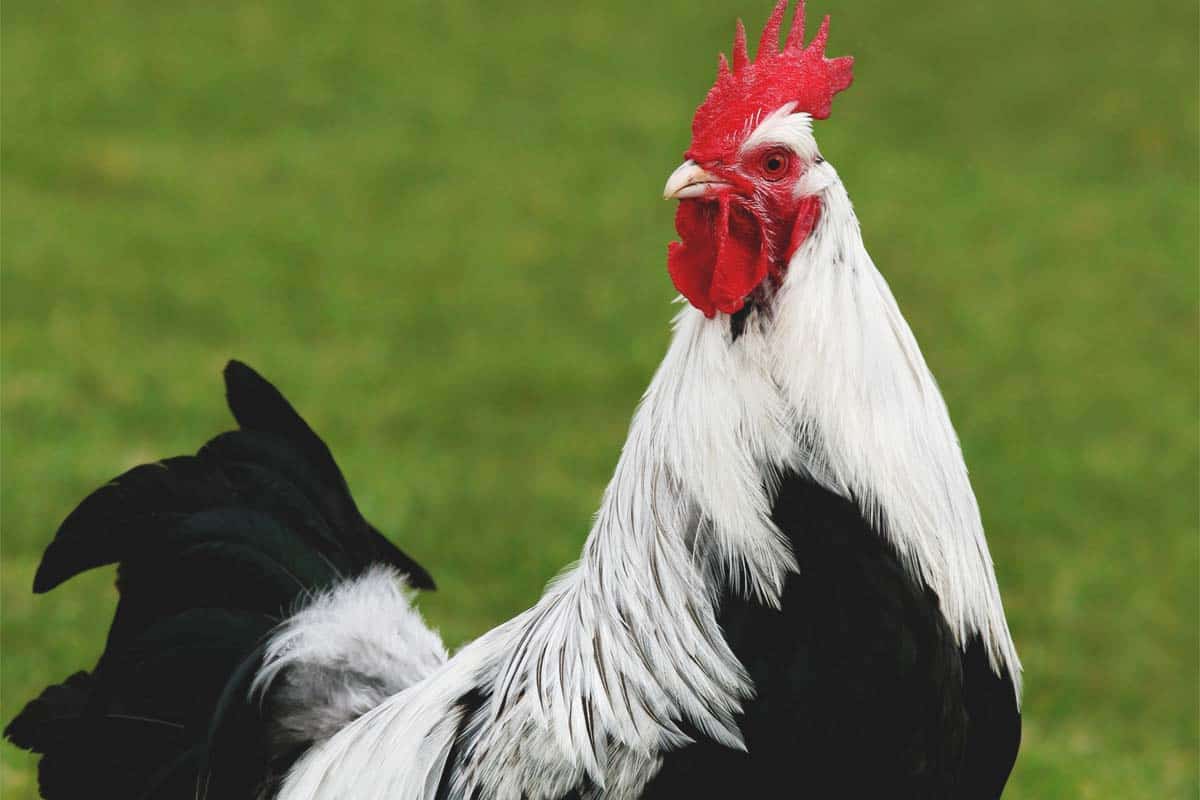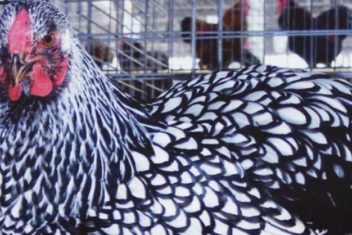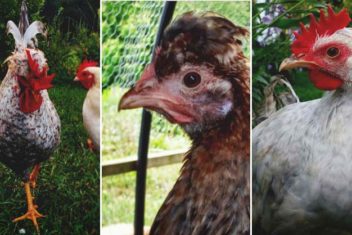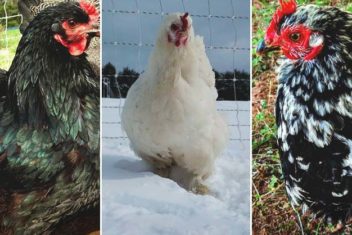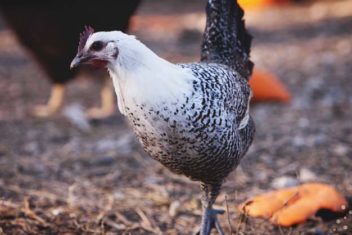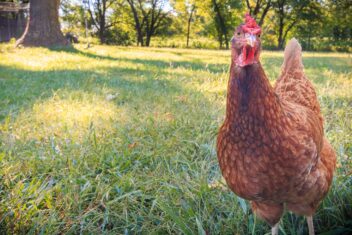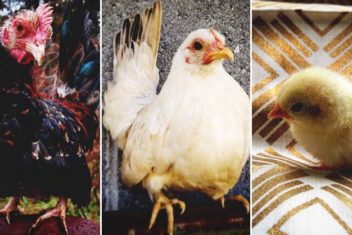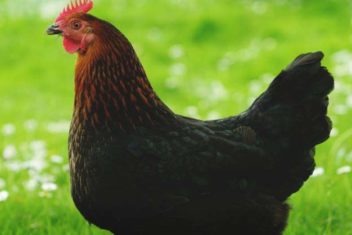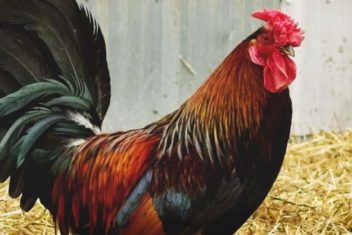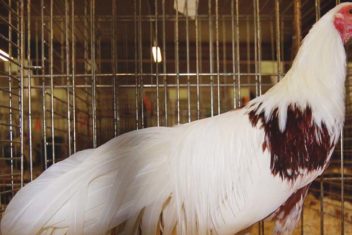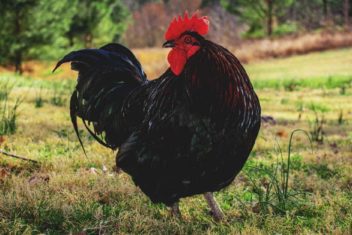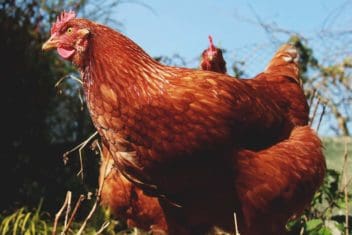Dorking chickens are an excellent breed for homesteading and sustainable farming with some characteristics that aren’t found in just any chicken. This breed is well known for excellent meat qualities and winter egg-laying – both sought after qualities.
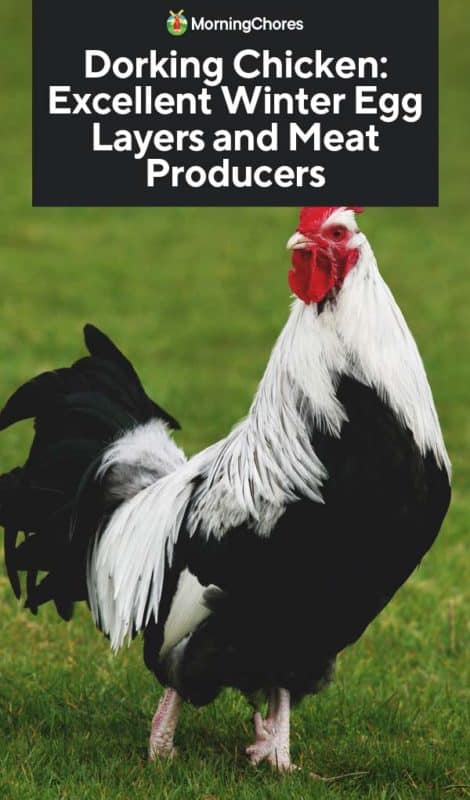
About Dorking Chickens
We don’t know terribly much about exactly where or when Dorkings originated, we just know that we love them! It is definite that the Dorking is one of the oldest breeds around, rumoring to have made an appearance as early as 43 A.D.
Exactly when Dorkings made it to America is also a little cloudy, but we know it was sometime before 1840. In 1874, White Dorkings were recognized by the American Poultry Association with Silver-Gray and Colored Dorkings being recognized in the following years.
Dorking Characteristics
1. Size and Weight
As is typical for dual-purpose chickens, Dorkings is a large chicken breed. Dorking hens are fairly large, weighing around 7 pounds when fully grown. Roosters are naturally a decent bit bigger, weighing about 9 pounds.
2. Temperament
Dorking’s temperament is absolutely sweet and golden. This breed is a good one to put on the top of your list if you’re after a calm and adoring chicken. Dorkings also have an excellent disposition to make wonderful mothers.
3. Egg Production
One thing that sets Dorkings apart from other breeds is their efficient production during the winter months. Most chickens slack off during the winter months, but not Dorkings. These birds will provide you with a steady stream of eggs when the rest of your flock is slacking off.
4. Meat Production
Dorking meat has been in incredibly high demand due to the delicious choice parts of meat such as the wishbone area, breast and wing parts. There was a point that Dorking meat was in such high demand that live chickens were a scarcity.
Taking Care of Dorking Chickens
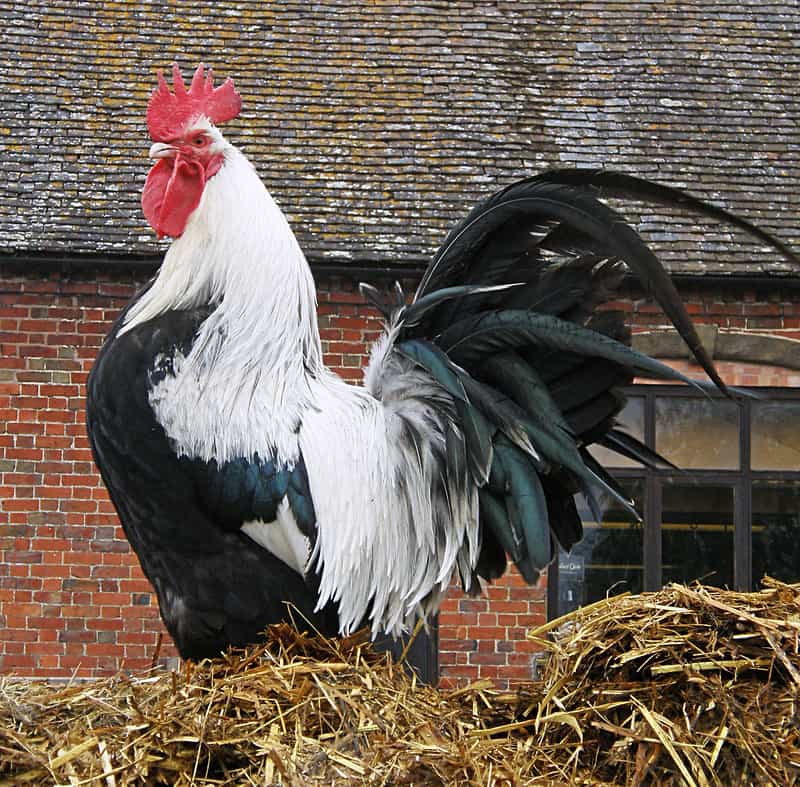
1. Feeding and Nutrition
Dorking chicks need to start their lives out on a good quality chick starter for the first several weeks of life. Around 12-14 weeks of age, you need to put your growing birds on a new diet of laying feed so their bodies can prepare for egg-laying. Your birds should be able to remain on this feed for the rest of their lives.
Occasionally you’ll need to supplement your hen’s diet with some extra calcium to support strong eggshells. If you find yourself with thin, brittle or soft eggshells, you can purchase oyster shells at your local feed store to feed separately and support stronger shells.
2. Housing and Fencing
Every bird needs a warm, dry and predator-proof place to go up to roost at night. Inside this cozy coop, you’ll need to allow 4 square feet of floor space per chicken.
As far as range goes, Dorkings enjoy free-ranging but will tolerate confinement if they must. For those that choose to keep their chickens in a run, you’ll need to provide a minimum of 10 square feet per chicken.
3. Health Issues and Care
As an older breed, Dorkings have built up strong immune systems over the decades. A great deal of flock health has to do with how the flock is managed and kept up. Keeping your flock in clean conditions and adequately spaced housing is important to have the healthiest birds possible.
Internal and external parasites are common issues that should be handled immediately upon discovery. Mites and lice can be prevented by providing a dust bath, but this does not guarantee they will never be an issue.
4. Breeding
Dorkings are listed on the watch list with the Livestock Conservancy, which means their numbers have reached such low numbers they are at risk of endangerment.
Such an important breed like the Dorking has too many exceptional qualities to die out. Any and all breeders willing to help preserve such an exceptional breed are always welcome to help the Dorkings.
Breed Alternatives
1. Partridge Plymouth Rock
Truth be told, there is no perfect alternative for a unique breed like the Dorking. Decent winter production and delectable meat is an unparalleled combination. However, Partridge Plymouth Rocks are also good egg and meat producers. The gorgeous Partridge Plymouth Rock looks similar to Dorkings in their own unique way.
Did You Know?
Dorkings have a unique quirk that not many chickens have. Instead of the classic 4 toed chicken feet, Dorkings sport an extra toe on each foot!
This incredible, heritage breed is a rare find that will grace every homestead it lives on with mouthwatering meat and fantastic eggs, even in the winter months. If you’re looking for a breeding project, look into the Dorking for an excellent dual-purpose breed to help preserve them for many generations to come.
